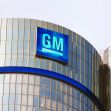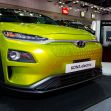On Wednesday, February 10, in a clash between two of the world’s largest battery makers, the U.S. International Trade Commission (ITC) affirmed a judge’s earlier ruling in favor of LG Chem. In making its decision, the commission was bound by statute to consider how its decision would affect U.S. consumers.
In 2019 LG Chem accused SK Innovation of stealing trade secrets about lithium-ion battery production. The complaint filed with the Commission asked that any import of batteries using the trade-secret-disputed technology and the equipment and materials necessary to make them be blocked. This move would prevent SKI’s plants in Georgia, currently under construction, from coming online.
A year ago, a default judgment was issued in LG’s favor. SKI was found to be in contempt because it destroyed documents that may have been relevant to the case. SKI admitted to the destruction of some documents but said that South Korean law does not require evidence preservation as the U.S. courts do.
This ITC ruling could wreak havoc with Ford Motor Co. and Volkswagen AG’s electric vehicle plans for their U.S. operations.
The ITC barred SKI from importing its batteries for ten years but allowed the import of equipment they will need to make batteries for Ford and VW long enough for the automakers to find a different battery supplier. The ITC also agreed to allow SKI to replace or repair its batteries in Kia vehicles sold in the U.S.
SKI is concerned about what the decision means for the future of its facility. SKI’s Georgia building project has cost SKI $2.6 billion. They say they will continue with construction.
The Biden administration’s intention to ramp up domestic battery and electric vehicle construction is also affected by this decision. The ruling marks the beginning of a 60-day review period for the White House. It is unusual for the commission’s rulings to be changed, but not unheard of.
If the White House intervenes, SKI can appeal the matter in federal court.
LG Chem was grateful for the Commission’s decision, saying, “SKI’s total disregard of our warnings and intellectual property rights gave us no choice but to file this case.” Kim Jong-hyun, LG Energy Solution’s CEO, said the company would “further strengthen the protection of intellectual property rights going forward.” LG Energy Solution is a wholly-owned battery subsidiary of LG Chem.
SKI regretted the ITC’s decision, but issued a statement that included this thought: “it’s a relief that we will continue to supply to Ford and Volkswagen.” The statement continued, “We also believe that the ITC ruling could have a serious adverse impact on President Biden’s policies to combat climate change and expand the electrification of the US auto fleet in coming years.”
Both Ford and VW advised the ITC last year that without the new factories, their electric vehicle plans will be delayed. The batteries are specifically designed for their new models, and there’s not enough U.S. capacity to fill their requirements.
One of the battery lines SKI intended to produce in the new facility is a plug-in version for Ford’s F-150 pickup. For Volkswagen, SKI was making batteries for a new crossover, the ID.4, a vehicle that will use VW’s battery-electric technology.
Both motor companies said they intend to bring these vehicles to production in 2022.
While auto emissions regulations are becoming more eco-friendly, some parts of the world are phasing out gasoline-powered cars, and automakers are under pressure to sell more battery-powered vehicles. This case highlights the difficulties they have in obtaining a steady supply of the batteries necessary to meet their growth targets for electric vehicles. If they don’t meet their targets, heavy fines could result.
Though auto manufacturers are dumping billions into making electric vehicles, their plans require expanded battery production. Analysts and executives say that production could fall short of the anticipated number of electric vehicles to be sold.
Not surprisingly, some automakers have opted to make the batteries themselves to lock in supply. Others are relying on outside battery makers like SKI and LG Chem for their supply.
China is the industry leader of the current battery supply chain, and European and U.S. governments and investors are now policy-driven to build a domestic capacity. Jennifer Granholm, Secretary of Energy, said, “We can buy electric car batteries from Asia, or we can make them in America.”
VW anticipated a “catastrophic supply disruption” that would injure its dealers, suppliers, and employees, as well as slow the consumer uptick of electric car purchases.
Ford envisioned that a ruling against them would “drastically reduce already limited [electric vehicle] battery supply” while hurting U.S. automakers’ competition with the seasoned battery manufacturing groups in Europe and Asia.
If SK Innovation’s Georgia plants come online, they are expected to make enough batteries for 300,000+ electric vehicles every year.
Robbie Diamond, chief executive of Securing America’s Energy Future, called the grace period given SKI for Ford and Volkswagen batteries “deft.” He said, “It most likely ends in a settlement for one company having to pay another company for technology over time, so they’ll continue to negotiate between themselves. But it won’t hurt the short-term needs of the U.S. market while those discussions get finalized.”
An anonymous official at LG Energy Solution said they would entertain settlement talks with SKI. If an agreement can be reached, the ITC’s case will be dropped.
The president has a 60-day review period in which he could decide to reverse the ruling. In the past, presidents have chosen to override the trade commission at times. Once the Obama administration overruled an ITC decision that would have banned Apple from importing iPhones and iPads that used technology from a patent held by Samsung. The administration cited potential harm to consumers and competitive conditions among its reasons for the decision.
The state of Georgia, through governor Brian Kemp, has appealed to the Biden administration to overturn or significantly modify the decision so that SKI can finish its facility and bring “thousands” more jobs to Georgia.






